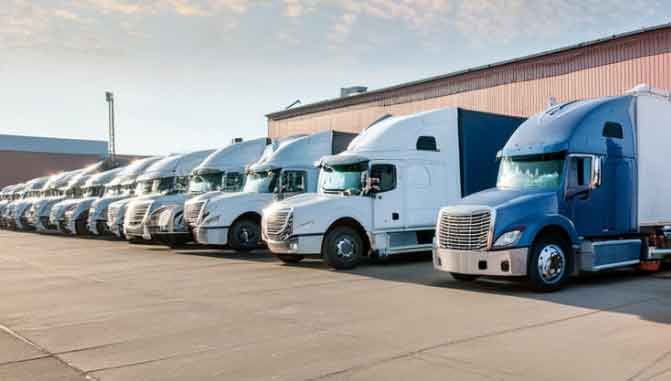Freight Cost Optimization
Freight Cost Optimization
Freight cost optimization is a critical aspect of controlling cost, helping shippers streamline their operations, reduce expenses, and improve their bottom line. In this article, we will explore the concept of freight cost optimization and how advanced technologies, such as Transportation Management Systems (TMS) and historical data analysis, can be employed to consolidate loads, negotiate custom contracts, and even optimize the placement of distribution centers. We will also look at how a freight broker like TLI utilizes technology to enhance these optimization processes.

Understanding Freight Cost Optimization
Freight cost optimization is a multifaceted approach to reducing transportation expenses while maintaining or improving service levels. It involves finding ways to cut costs without compromising the quality and efficiency of the supply chain. This process can be broken down into several key components:
Load Consolidation: One of the primary strategies for optimizing freight costs is consolidating loads. This means combining smaller shipments from different sources or customers into a single, larger shipment. By doing so, companies can reduce the number of individual deliveries, which, in turn, lowers transportation costs and minimizes the environmental impact of shipping.
Custom Contract Negotiation: Custom contracts are agreements tailored to a specific shipper's actual needs, rather than relying on standardized terms. Negotiating these contracts can lead to cost savings and improved service. These agreements take into account factors like shipment volume, frequency, cargo liability, accessorial utilization, and unique shipping requirements. By analyzing historical data, shippers can identify opportunities for customized contract negotiations that are mutually beneficial for both parties.
Data-Driven Decision-Making: Historical supply chain data analysis plays a pivotal role in freight cost optimization. By examining past shipping and supply chain data, companies can identify patterns, trends, and opportunities for cost reduction. This data-driven approach provides insights into areas where efficiency can be improved, enabling companies to make informed decisions to reduce transportation costs. Back office teams overwhelmed with daily tasks often neglect freight rate auditing, or running scenario planning around this historical freight data. Many shipping companies delegate to Transportation Outsourcing Business Process Providers (BPO) and tech providers.

TMS Rating Engines
Transportation Management Systems (TMS) are software platforms that help companies manage and optimize their transportation processes. TMS rating engines are a critical component of these systems. They allow shippers to assess the cost and service levels associated with various carriers, routes, and shipment options. Here's how TMS rating engines contribute to freight cost optimization:
Carrier Evaluation: TMS rating engines can evaluate the performance of different carriers, considering factors like on-time delivery rates, costs, and overall service quality. This data helps shippers make informed decisions when selecting carriers for their shipments, ensuring that they are both cost-effective and reliable.
Route Optimization: TMS systems use algorithms to determine the most efficient transportation routes. By considering factors like distance, traffic conditions, and shipment volume, these systems can help shippers reduce transit times, minimize fuel consumption, and lower transportation costs.
Load Consolidation: TMS rating engines can assess the potential cost savings from load consolidation. They provide insights into how combining shipments from multiple sources can lead to reduced costs, helping shippers make informed decisions about load consolidation.

Freight Cost Optimization Technology
TLI is a freight brokerage company that has embraced technology to optimize transportation and distribution processes. TLI employs innovative strategies to reduce costs and improve service quality for its customers:
Historical Data Analysis: TLI leverages historical data to gain insights into shipping trends and patterns. This data helps TLI identify opportunities for custom contract negotiations and load consolidation, leading to cost savings for both shippers and carriers.
Heat Maps and Distribution Center Placement: TLI has aided shippers using heat maps based on historical activity to make informed decisions about where to place distribution centers. By analyzing the concentration of shipping activity, they can strategically position these centers to minimize transit times and transportation costs.
Tracking Visibility: TLI provides visibility into shipments, allowing customers to track their goods throughout the supply chain. This transparency enhances communication and helps identify potential issues before they escalate, ensuring that shipments arrive on time and without damage.
Freight cost optimization is a critical component of efficient supply chain management, and it's a process that can benefit both shippers and carriers. By leveraging technology and historical data analysis, companies can consolidate loads, negotiate custom contracts, and optimize distribution center placement. Freight brokers like TLI use these strategies to reduce costs and improve service quality, ultimately enhancing the overall efficiency of the supply chain. As technology continues to advance, the opportunities for optimizing freight costs are bound to expand, offering even greater benefits to the logistics industry.
TLI Insights
Get the latest logistics insights and tips from TLI's award-winning team. Stay ahead in transportation planning.
Questions? Email us at marketing@shiptli.com



